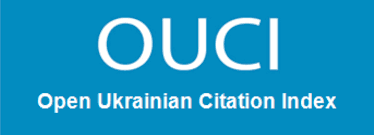INTENSITY OF METABOLIC PROCESSES IN THE RUMENOF DAIRY COWS FED STANDART AND EXPERIMENTAL FEED ADDITIVES
G. Sedilo, M. Polulikh, Ya. Vovk
This email address is being protected from spambots. You need JavaScript enabled to view it.
Institute of agriculture of Carpathian region NAAS, 81115, Hrushevskoho str., 5,
Obroshyno village, Pustomytovsky district, Lviv region, Ukraine
The article presents a comparative estimation (by level of rumen fermentation) efficiency of standard and experimental balancing feed additives to silage-concentrate diet for dairy cows of biogeochemical conditions of Precarpathian region in winter season.
Experiment (lasting for 90 days) was carried out on two groups of cows-analogues (live weight, lactation number, milk yield). The 1-st (control) group of animals received grains (barley, wheat, oats, rye, corn) protein-vitamins supplement BVD 60-1-89 (protein part of which represented by sunflower and soybean meal and yeasts) and premix P 60-6М. Analysis of minerals and vitamins composition in the diet of control group cows pointed out the deficits of Sodium, Sulfur, Copper, Zinc, Cobalt, Iodine, Selenium and vitamin D. Cows of 2-nd (experimental) group have got the experimental variant of protein-minerals-vitamins supplement (on replacement of BVD 60-1-89) contained extruded beans and rapeseed, wheat bran and corrected amount (according to a norm) of the mentioned above minerals and vitamin D. Furthermoreto the structure of premix was included biological active addition — sodium humate (20 mg per 1 kg of body weight).
Cosuming silage-concentrate diet with experimental protein-minerals-vitamins supplement accompanied by intensification of the ruminal fermentation compared to BVD 60-1-89 usage. Evidence of this is the large quantity of amilo-, celluloso- and proteolyitic bacteria, growth of amylolytic and cellulolytic activities,resulting in elevated VFA production. Simultaneously occurs the process of intensive accumulation of raw and absolutely dry mass of microflora, increasing protein nitrogen concentration, phosphorus RNA, total acid-soluble phosphorus and decrease ammonia concentration in the rumen of II group compared to I. Owning to various levels of intergroup rumen fermentation average daily milk yield in the control animals was 19.2 kg, and in the experimental — 20.9 kg. Percentage difference was 8.9% in favor of II group. Considering the presented results concluded that proposed protein-minerals-vitamins supplement for lactating cows activates metabolic processes in therumenand positively affects the milk productivity.
Keywords: DAIRY cows, RUMEN, PROTEIN-MINERALS-VITAMINS SUPPLEMENT, Bacteria, microbial mass, protein nitrogen, ammonia, nucleic acid, phosphorus














